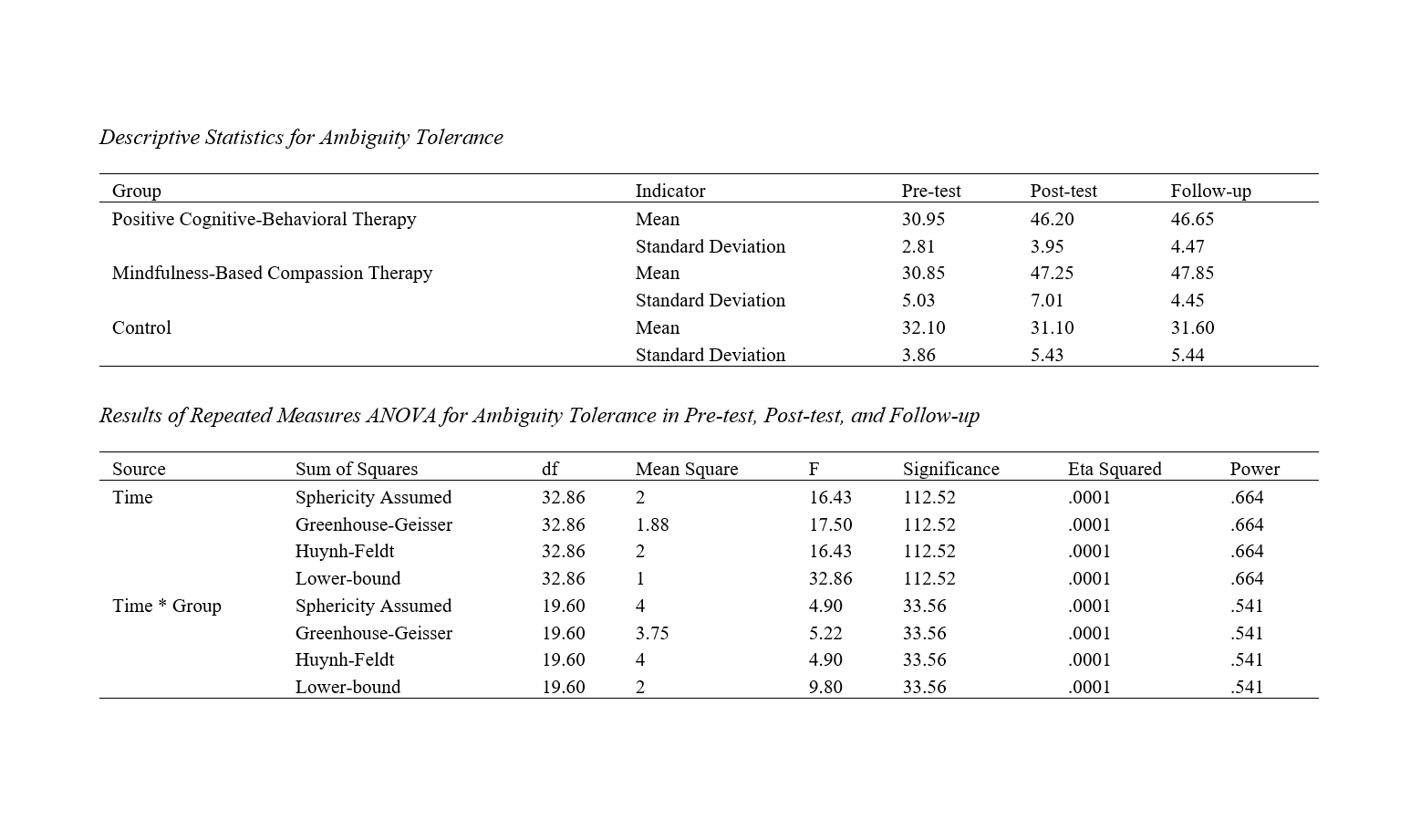Comparison of the Effectiveness of Mindfulness-Based Compassion Therapy and Positive Cognitive-Behavioral Therapy on Ambiguity Tolerance in Female Heads of Households
Keywords:
Ambiguity Tolerance, Positive Cognitive-Behavioral Therapy, Mindfulness, Female Heads of Households, Compassion TherapyAbstract
Objective: The aim of this study was to examine the effectiveness of mindfulness-based compassion therapy and positive cognitive-behavioral therapy on ambiguity tolerance in female heads of households in Shahrekord.
Methods: The research design was a quasi-experimental one, employing a pre-test, post-test, and follow-up with a control group. The statistical population included female heads of households in Shahrekord. Sixty participants were selected through purposive sampling and randomly assigned to three groups (20 participants per group). The experimental groups underwent 8 sessions of mindfulness-based compassion therapy and positive cognitive-behavioral therapy, each lasting 120 minutes. To determine the effectiveness of the interventions, the McLain Ambiguity Tolerance Questionnaire (1993) was used, and the data were analyzed using repeated measures analysis of variance.
Findings: The findings showed that the effectiveness of mindfulness-based compassion therapy and positive cognitive-behavioral therapy compared to the control group on ambiguity tolerance in the post-test were (0.691) and (0.560), and in the follow-up were (0.755) and (0.632), respectively. Additionally, the results indicated that mindfulness-based compassion therapy was more effective than positive cognitive-behavioral therapy.
Conclusion: Based on the results of this study, mindfulness-based compassion therapy can be used as a more sustainable and effective intervention than positive cognitive-behavioral therapy to increase ambiguity tolerance in female heads of households.
Downloads

Downloads
Additional Files
Published
Submitted
Revised
Accepted
Issue
Section
License

This work is licensed under a Creative Commons Attribution-NonCommercial 4.0 International License.




















